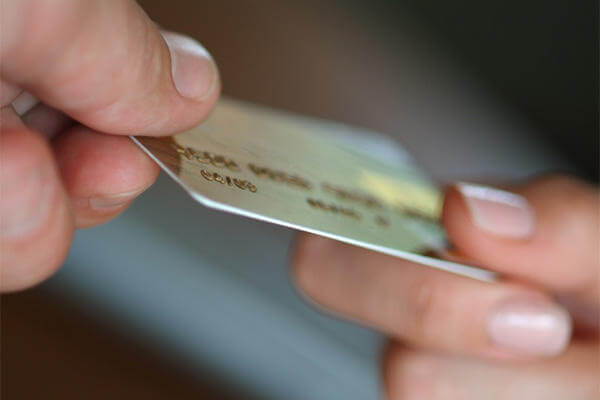Whether you're buying something for free with gift cards or paying for a dream vacation on points, getting rewards from your credit card can be extremely satisfying. But with so many credit cards out there with confusing terminology and rules, the companies don't make it easy for consumers to figure out how to get rewards.
In this article, we offer tips to help you maximize your rewards. First, figure out what kind of rewards card is for you and what to look out for. Next, discover some of the resources available for folks who are passionate about maxing out their points. Finally, discover how you can get more points through third-party programs.
What are your priorities?
If you're considering a rewards card, it's worth thinking through what is important to you, because that's how you really maximize the points. Find the card that is best for you. For instance, if you get a miles card but you're a homebody who doesn't like to travel, a travel-related card may not be the best fit.
Ask yourself what your lifestyle is like. Are you a road warrior who travels often? A frequent flier or hotel rewards card is your best choice. Are you looking to pay off debt? Cash-back could be the way to go. Perhaps you love to cook and eat out. Then a card that offers more points for groceries and restaurants would be the one for you.
My personal favorite rewards card is the Fidelity American Express Card. You earn rewards for something that is even better than a dream trip: retirement. 2% of your purchases add up to funds that can be deposited to your Fidelity account. Depending on the card, they can be used for your retirement, 529 account, or brokerage accounts. This means that your spending automatically transfers into money that will contribute towards your golden years.
Education and research
Understanding your lifestyle priorities is important because you'll be more likely to get more points when your card fits your lifestyle, rather than the other way around. Other factors to consider are: how long the introductory 0% APR offer lasts, if there is an annual fee, what kind of purchases result in double points, and what other perks are offered.
Luckily, many other people have done the research for you. Check out Flyer Talk for information on travel credit card programs. Nerd Wallet has a great roundup of gas credit card programs. And if you're looking for information on grocery credit card programs, Wise Bread has you covered.
Finally, do the math on your rewards. If you get 6% on groceries, that sounds enticing. Then, as so often happens, it turns out there's a limit up to $6000, so actually, all you're getting back is $360.
Double down on points through points programs
When you sign up for a rewards credit card, check to see what the signup bonus is. The signup bonus will be your largest source of points during the life of your credit reward program.
To really get points, stick to one or two credit card rewards programs to make this really work. If you spread out your spending, then your ability to earn points will be diffused across several programs, defeating the purpose. If the programs reward you further for purchasing from a specific brand or company (as many airlines do), then you'll need to make sure that you are making your purchases there to really earn points.
You may also consider signing up for a third-party points program, such as MyPoints or UChoose Rewards. These programs work by giving you points when you make a purchase at partner companies through their portal, allowing you to earn points in multiple places. These points can then be redeemed for gift cards and other rewards, including cash.
For instance, let's say you have an airline credit card. You buy a ticket for your airline by going through a link on the third-party reward points program website portal, which still takes you to the airline website. You make your purchase. Now you've earned rewards in several different places: 1) your frequent flier program 2) your airline credit card program, which likely gives you 2x miles for your purchase and 3) the third-party rewards program.
No matter what credit card program you sign up for, however, be careful that you don't fall into the debt trap. If you allow the temptation of using credit cards to lure you into long-term revolving debt, that means you'll lose money in the long run. If you happen to already have credit card debt, then focus first on paying it off. There are plenty of online resources, like this one, which can help you navigate your options and make a plan to get debt free.
And here's one other way guarantee that you won't be wasting money on a credit card rewards program: don't make a late payment. One late payment could result in a fee that will undo all of your earnings and rewards that you earn in your credit card rewards program.
Fiona Lee is a personal finance writer for ReadyForZero, a website that helps people get out of debt faster on their own. She is a frugalista who loves discovering new ways to save money, especially in expensive cities. After living in New York and Beijing, she now makes her home in San Francisco. You can follow @ReadyForZero and @moderntime on Twitter.




